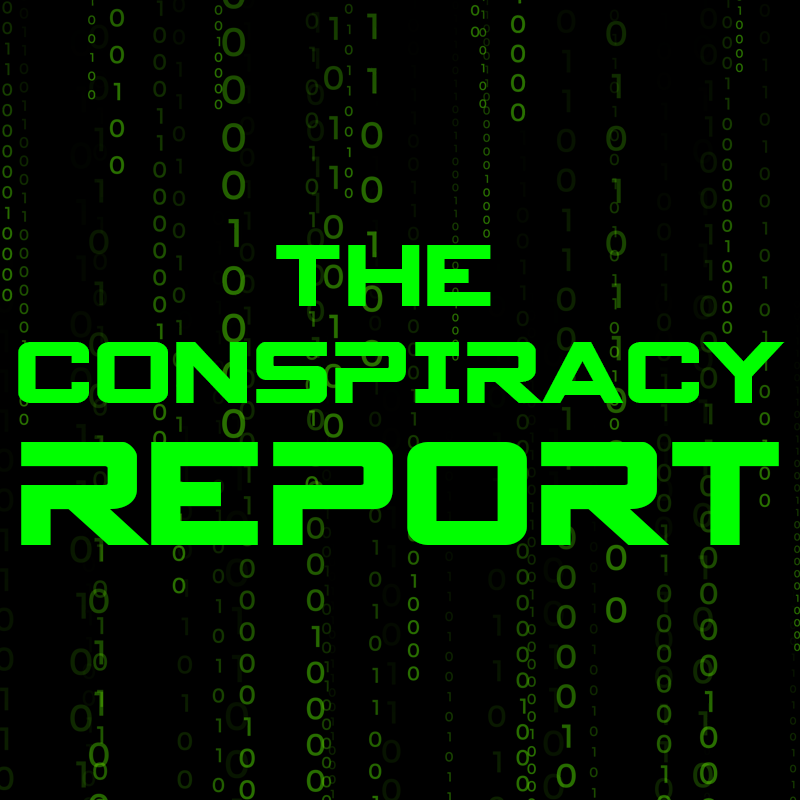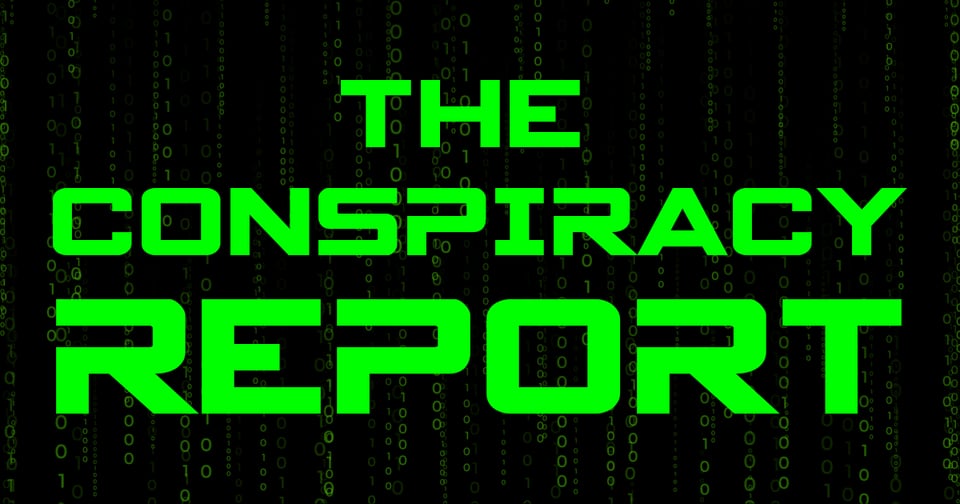Jan. 12, 2025, 11:35 p.m.
Crossroads: The Intersection of Religion and Politics

The Conspiracy Report

Religion interfering with governmental administration is nothing new.
Whether we call the government head a Pharaoh, a Divine King, or a President of the United States. Many times, in history, religious leadership was the government.
The United States made the effort since its formation, to combat the encroachment of theocracy on democracy. Initially, with the First Amendment in the Bill of Rights. More recently, with the 1954 Johnson Amendment, named after its proponent, Lyndon B. Johnson.
The Johnson Amendment is a provision in the U.S. tax code, since 1954, that prohibits all 501(c) (3) non-profit organizations from endorsing or opposing political candidates.
That, of course, would include religious organizations. See: 26 USC 501c (3).
In a Revenue Ruling 2007-41, the IRS stated ‘for their organizations to remain tax exempt under section 501(c)(3), leaders cannot make partisan comments in official organization publications or at official functions of the organization.’
But as has become abundantly evident, it appears that within the last ten years, this prohibition is honored more in the breach.
The pulpit has been found in the middle of U.S. politics, from Christian Nationals openly supporting Donald Trump, to Trump holding an unintentionally upside down bible for a photo op… and then hawking his own rather low rent bible as a fund raising mechanism.
Trump, has proven to be all in when it comes to watering down the Johnson Amendment’s protections against pulpit politics. In 2017, he signed an executive order that limited enforcement of the Johnson Amendment or any other adverse action against any individual or religious organization for speaking about moral or political issues from a religious perspective.[1]
Perhaps emboldened by the obvious support of Trump, (who prior to his entry into politics was about as concerned with religion as he was with the restrictions of Fair Housing Laws), churches have turned to the courts to challenge the remnants of the Johnson Amendment. And to eventually get a pass on political involvement and propaganda promotion.
No Taxation Even With Representation
A variety of church groups, in 2024, including the National Religious Broadcasters, have brought suit to declare the Johnson Amendment unconstitutional. Ironically, they are using the First Amendment right to free speech, to enable them to substantially violate the First Amendment safeguards against the intermingling of church and state.
In reality, it is not freedom of speech they seek, (which they have never been denied), it is freedom of speech while enjoying the freedom from taxation afforded to 501[c] (3) organizations — like churches. They want their wafer and eat it too, so to speak.
The suit was brought in the United States District Court for the Eastern District of Texas Tyler Division, naming the IRS and its director as defendants. The complaint alleges, inter alia, that with respect to the Internal Revenue Code, (IRC), ‘The IRC places them automatically within the ambit of 501(c)(3) and thereby silences their speech, while providing no realistic alternative for operating in any other fashion.’
In the suit, the plaintiffs self-identify as ‘religious nonprofit organizations in the business of communicating their views to the public’ that ‘desire to communicate their views about candidates’ positions that are relevant to the issues Plaintiffs care about.’
It is further alleged in the suit that the IRS ‘operates in a manner that disfavors conservative organizations and conservative, religious organizations.’
Not only are they seeking freedom from the Johnson Amendment, they are seeking their legal fees in so doing. In other words, they want the government to fund their legal fight for legal ‘rights’ to which they are not entitled.[2]
The word ‘chutzpah’ comes to mind to this reporter. Although it would not be one in the vocabulary of these plaintiffs.
Is there any ‘good faith’ amongst those who claim to be both good and faithful when they seek tax benefits while expressing political opinions proscribed by the Johnson Amendment? Tax benefits that the average citizen does not receive while expressing his political opinions.
Bogus Religions
Head honcho, Troy Miller of the National Religious Broadcasters had this to say, ‘We believe that all nonprofits should have the constitutional right to freely express their point of view on candidates, elections, and issues on the ballot. Our challenge to the Johnson Amendment is about securing the future of free expression for all Americans, particularly those standing in the pulpit.’[3]
That is of course bogus. They aren’t seeking ‘the right to freely express their point of view,’ they are seeking the right to do it free from taxes, which is an advantage not enjoyed by those who are not under the protection of 501[c](3) status.
And the rank and file Americans are clear on their viewpoint regarding the endorsement of candidates by religious organizations. In a 2017 research poll undertaken by Pew Research, it was found ‘Just 33% of Republicans and Republican-leaning independents and 26% of Democrats and Democratic leaners say churches should endorse specific political candidates.’[4]
For a specific reason to worry about this lack of separation of church and state when it comes to pulpit pounders and politicians, it has been revealed that ‘Pete Hegseth, president-elect Donald Trump’s nominee for secretary of Defense, has close ties to an Idaho-based Christian nationalist church that aims to turn America into a theocracy.’
That church is Christ Church whose pastor, Doug Wilson, ‘has a rigid patriarchal belief system and don’t believe in the separation of church and state.’ On top of that bit of theocratic attack on our freedom, the church also is in favor of ‘taking away the right to vote from most women, barring non-Christians from holding office and criminalizing the LGBTQ+ community.”
Wilson said, ‘I was grateful for Trump’s win, and believe that it is much more likely that Christians with views similar to mine will receive positions in the new administration.’[5]
Think about this.
Many of the hot spots of war in the world deal with Islamic populations. Besides blowing them up, we likely will need to deal with them diplomatically.
When the individual who may be tasked as Secretary of Defense has ties to such a conservative Christian organization that doesn’t believe in the First Amendment separation of church and state, while it believes in being free from taxation, diplomacy may take a back seat to Crusade.
Why You Should Care
These are powerful groups whose finances are abundant, yet not taxed. They align themselves with those who will be making crucial domestic and foreign policy decisions on behalf of the people of the United States.
For that reason, it’s likely that those who do not have such connections and benefits will be powerless to have their viewpoints adequately represented.
When such groups are ultra-conservative Christians, it is likely that the protections of the First Amendment, and other important safeguards of individual freedom, will be tossed out with the water in the baptismal font.
Non-Christians, non-males, and non-heterosexual citizens will experience what amounts to a political pogrom, deeming them to be, at best second class citizens, and at worst persona non grata.
[1] Trump Signs “Johnson Amendment” Executive Order Limiting Treasury’s Actions Against Religious Organizations Engaged in Political Campaign Activities Proskauer, 5/19/17 https://nonprofitlaw.proskauer.com/2017/05/09/update-president-trump-signs-johnson-amendment-executive-order-limiting-treasurys-actions-against-religious-organizations-engaged-in-political-campaign-activities/
[2] Religious broadcasters, churches file lawsuit against Johnson Amendment Christian Post 8/30/24 https://www.christianpost.com/news/unconstitutional-churches-file-lawsuit-against-johnson-amendment.html
[3] THE TENNESSEAN lawsuit against the IRS aims to allow churches a greater role in politics 9/16/24 Angela Latham https://www.tennessean.com/story/news/religion/2024/09/16/texas-religious-groups-file-lawsuit-against-irs-to-blur-line-between-church-and-politics/75089290007/
[4] Most Americans oppose churches choosing sides in elections 2/3/2017 Gregory Smith https://www.pewresearch.org/short-reads/2017/02/03/most-americans-oppose-churches-choosing-sides-in-elections/
[5] Trump’s Defense secretary nominee has close ties to Idaho Christian nationalists Idaho Capital Sun, Heath Druzin 9/21/2024 https://idahocapitalsun.com/2024/11/21/trumps-defense-secretary-nominee-has-close-ties-to-idaho-christian-nationalists/